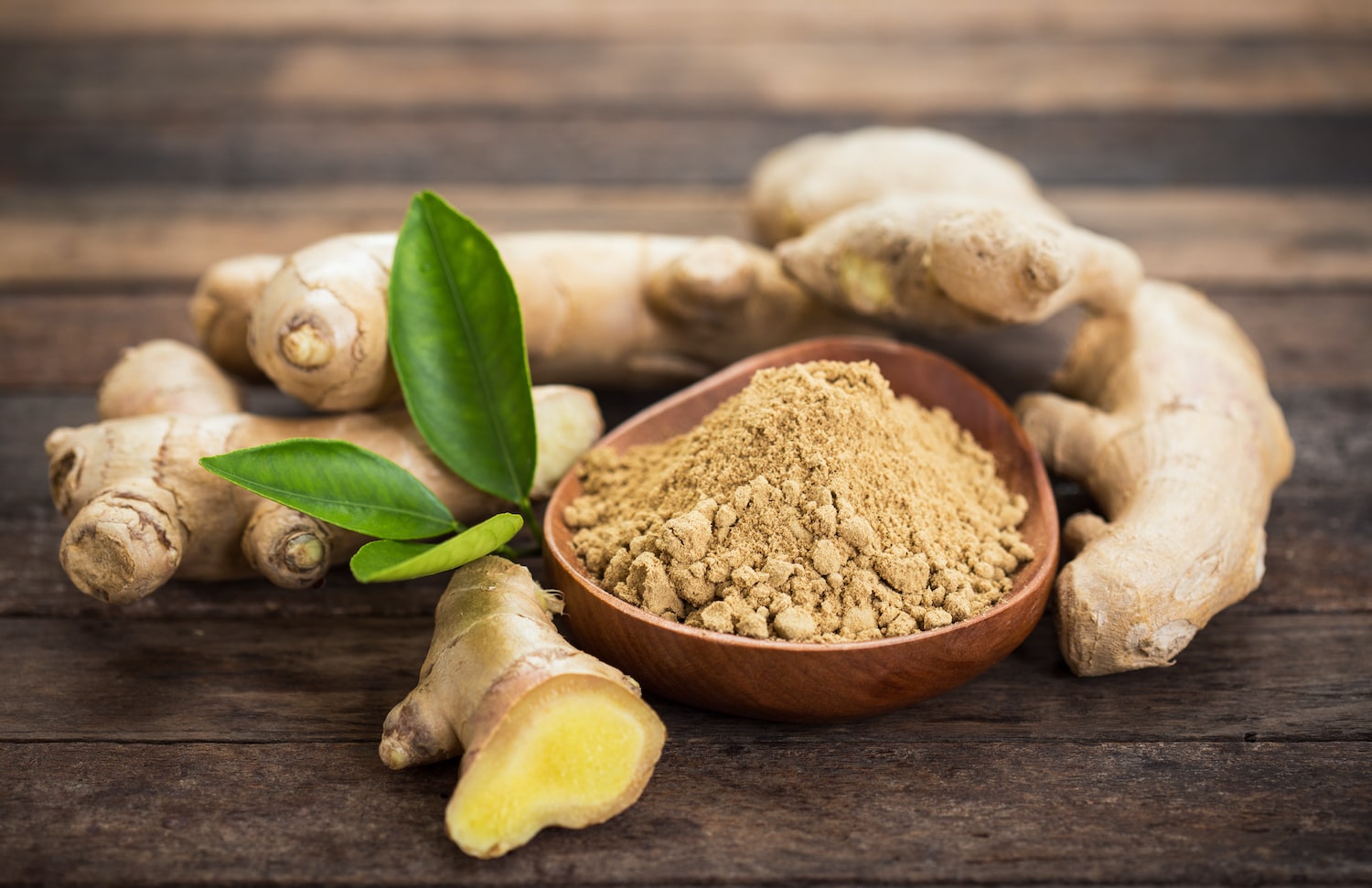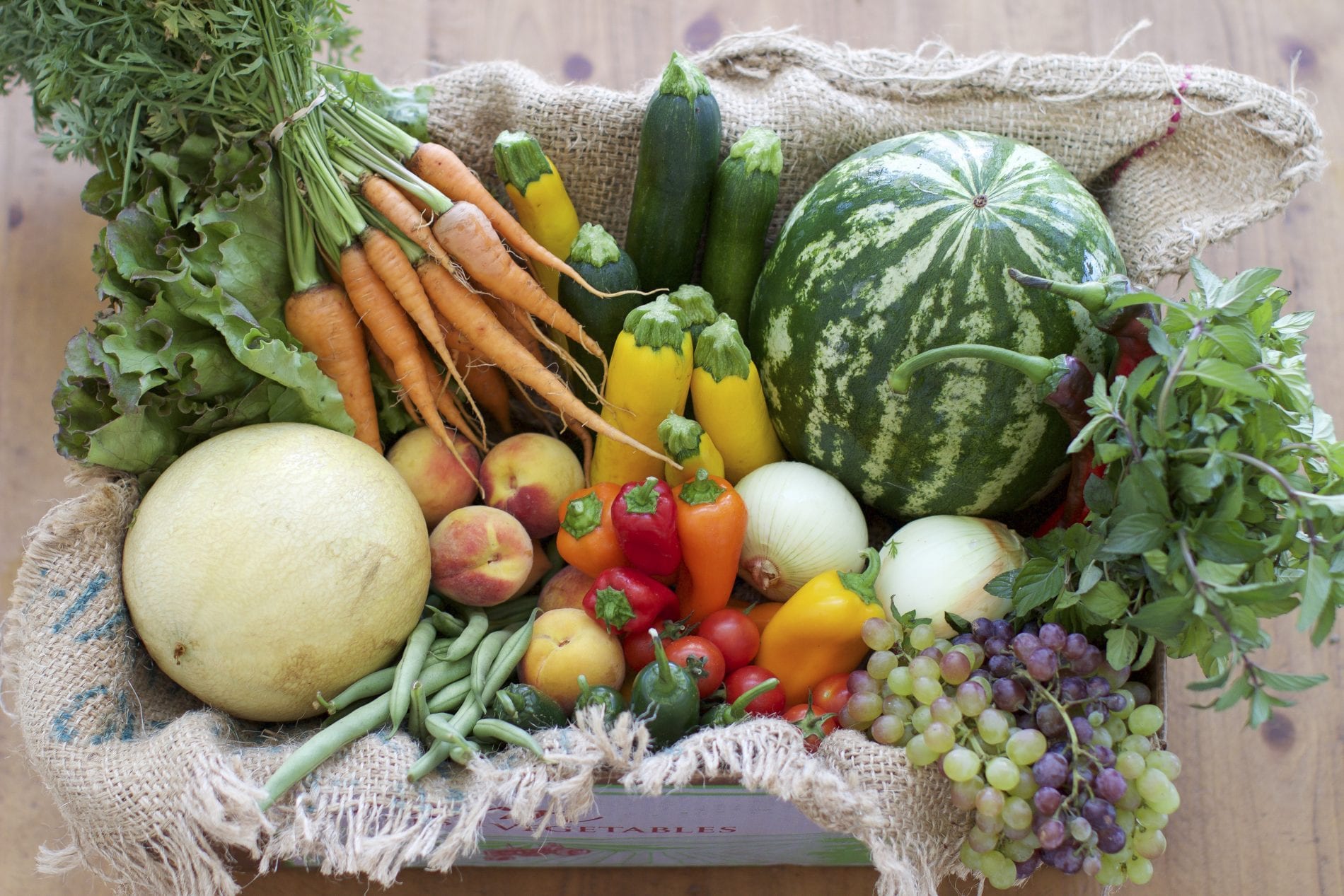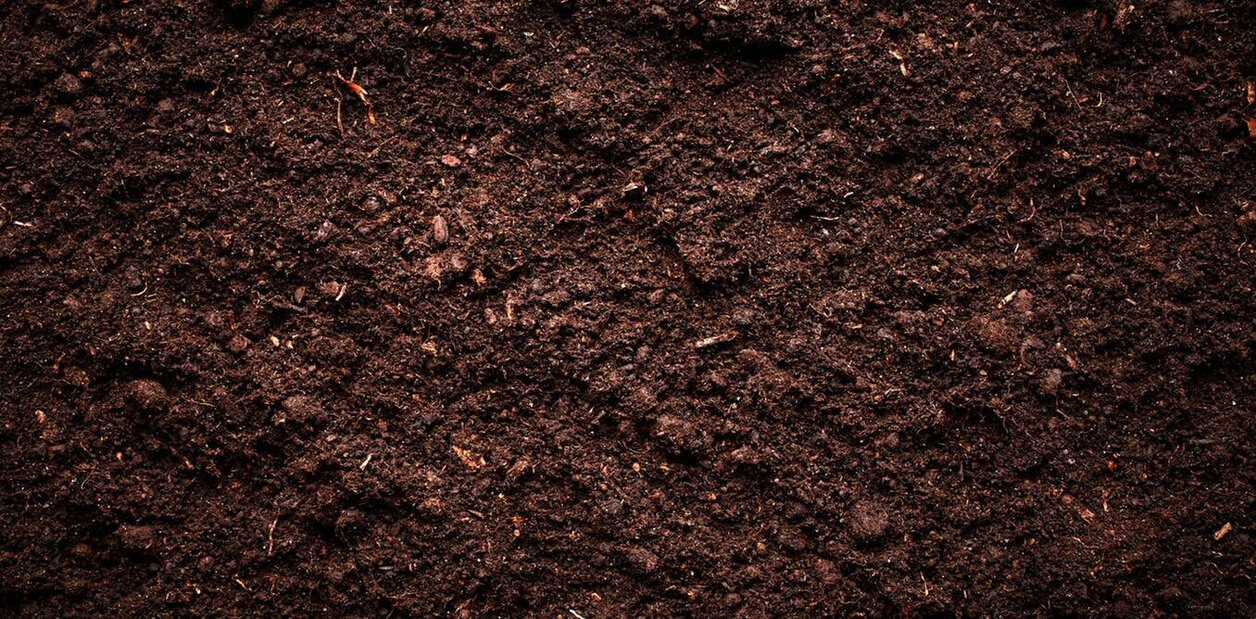Home>Gardening Basics>Understanding Soil>How To Increase Organic Matter In Soil


Understanding Soil
How To Increase Organic Matter In Soil
Modified: February 10, 2024
Learn how to increase organic matter in soil and improve soil health with our comprehensive guide. Understand the importance of organic matter for soil fertility and sustainability. Discover effective methods for increasing organic matter in your soil today!
(Many of the links in this article redirect to a specific reviewed product. Your purchase of these products through affiliate links helps to generate commission for Chicagolandgardening.com, at no extra cost. Learn more)
Table of Contents
**
Introduction
**
Understanding the significance of organic matter in soil is crucial for cultivating healthy and productive crops. Organic matter serves as a foundation for soil fertility, contributing to its structure, moisture retention, and nutrient availability. In this comprehensive guide, we will delve into the essential role of organic matter in soil health and explore effective methods to increase its presence. By implementing these techniques, farmers and gardeners can enhance the quality of their soil, leading to improved plant growth and sustainable agricultural practices.
The content of organic matter in soil is a vital component of a thriving ecosystem. It influences the soil's ability to support diverse microbial life, which in turn aids in nutrient cycling and plant resilience. Moreover, organic matter fosters soil aggregation, enhancing its capacity to resist erosion and maintain a stable structure. By increasing organic matter content, farmers can mitigate the impact of environmental stressors and promote long-term soil health.
As we embark on this exploration, we will uncover the various methods that can be employed to bolster organic matter in soil. From composting and cover cropping to mulching and utilizing organic amendments, each approach offers unique benefits that contribute to the overall vitality of the soil. By understanding and implementing these strategies, individuals can actively participate in the preservation and enhancement of soil health, thereby fostering sustainable agricultural practices for future generations.
Through this guide, we aim to provide practical insights and actionable steps that empower farmers, gardeners, and agricultural enthusiasts to elevate their soil's organic matter content. By embracing these methods, individuals can cultivate resilient and fertile soil that forms the cornerstone of bountiful harvests and a thriving agricultural landscape. Let's embark on this journey to unlock the potential of soil organic matter and harness its profound impact on sustainable agriculture and environmental stewardship.
**
Importance of Organic Matter in Soil
**
Organic matter plays a pivotal role in soil health, exerting a multifaceted influence on its physical, chemical, and biological properties. Its significance extends beyond mere nutrient provision, encompassing the enhancement of soil structure, water retention, and overall fertility.
One of the primary benefits of organic matter lies in its ability to improve soil structure. It promotes the formation of aggregates, which not only facilitates root penetration and aeration but also reduces soil compaction. This, in turn, enhances the soil’s capacity to retain water and resist erosion, contributing to its long-term sustainability.
Furthermore, organic matter serves as a reservoir for essential nutrients, gradually releasing them to plants as they grow. This steady supply of nutrients not only sustains plant growth but also minimizes the risk of nutrient leaching, thereby preserving water quality and minimizing environmental impact.
Moreover, organic matter fosters a thriving microbial community within the soil, supporting crucial processes such as nutrient cycling and disease suppression. The diverse array of microorganisms present in organic matter contributes to the overall resilience of the soil ecosystem, bolstering its ability to withstand environmental stressors and sustain healthy plant growth.
Additionally, the presence of organic matter in soil enhances its capacity to sequester carbon, playing a vital role in mitigating climate change. By retaining carbon within the soil, organic matter contributes to the reduction of atmospheric carbon dioxide levels, thereby promoting environmental sustainability.
In essence, organic matter serves as the lifeblood of soil, nurturing its physical, chemical, and biological components to create a fertile and resilient environment for plant growth. Understanding and harnessing the importance of organic matter in soil is fundamental to sustainable agriculture and environmental stewardship, laying the groundwork for bountiful harvests and a thriving ecosystem.
Understanding Soil Organic Matter
Soil organic matter encompasses a diverse array of materials derived from once-living organisms, such as plant residues, animal manure, and microbial biomass. These organic components undergo decomposition, leading to the formation of stable organic compounds that persist in the soil. Understanding the composition and dynamics of soil organic matter is essential for comprehending its pivotal role in soil health and agricultural productivity.
The composition of soil organic matter comprises various fractions, including fresh plant residues, partially decomposed organic materials, and stable organic compounds. Each fraction contributes distinct benefits to the soil, influencing its physical, chemical, and biological properties. The decomposition of organic matter is facilitated by a myriad of soil organisms, including bacteria, fungi, and earthworms, which break down complex organic materials into simpler compounds that are integrated into the soil ecosystem.
Furthermore, the stability of soil organic matter is influenced by factors such as soil texture, climate, and land management practices. Soils with higher clay content tend to harbor more stable organic matter, as clay particles provide protection against microbial decomposition. Additionally, environmental conditions, such as temperature and moisture, play a crucial role in determining the rate of organic matter decomposition and accumulation in the soil.
By comprehending the intricate dynamics of soil organic matter, farmers and agricultural practitioners can make informed decisions regarding land management and soil amendment strategies. Recognizing the diverse sources and forms of organic matter in soil enables individuals to implement targeted approaches to enhance soil fertility, mitigate erosion, and promote sustainable agricultural practices.
Ultimately, a nuanced understanding of soil organic matter empowers individuals to harness its potential in cultivating resilient and fertile soil, paving the way for sustainable agricultural practices and environmental stewardship.
Methods to Increase Organic Matter in Soil
Enhancing the organic matter content in soil is a fundamental aspect of sustainable land management and agricultural productivity. Several proven methods can be employed to increase the presence of organic matter in soil, thereby fostering its fertility and resilience. By implementing these strategies, farmers and gardeners can cultivate thriving ecosystems and promote sustainable agricultural practices.
Composting
Composting is a highly effective method for recycling organic waste and enriching the soil with valuable nutrients. By creating a compost pile comprised of organic materials such as kitchen scraps, yard waste, and manure, individuals can facilitate the decomposition process, yielding nutrient-rich humus that enhances soil fertility. The incorporation of compost into the soil not only increases organic matter content but also improves its structure and water retention capabilities.
Cover Cropping
Utilizing cover crops, such as legumes and grasses, provides an excellent means of adding organic matter to the soil while simultaneously preventing erosion and suppressing weed growth. As cover crops grow and subsequently decompose, they contribute organic material to the soil, enriching its nutrient content and promoting microbial activity. Additionally, cover crops enhance soil structure and moisture retention, bolstering its overall health and productivity.
Mulching
Applying organic mulch, such as straw, wood chips, or compost, to the soil surface serves as a protective layer that gradually decomposes, enriching the soil with organic matter. Mulching not only conserves soil moisture and regulates temperature but also fosters a favorable environment for soil microorganisms, promoting the decomposition of organic materials and the accumulation of humus within the soil.
Using Organic Amendments
Integrating organic amendments, such as animal manure, biochar, and green manure, into the soil represents a valuable approach for increasing organic matter content. These amendments contribute essential nutrients and organic materials to the soil, enhancing its fertility and promoting microbial activity. By incorporating organic amendments, individuals can bolster soil health and productivity while reducing reliance on synthetic fertilizers.
By leveraging these methods, individuals can actively contribute to the enrichment of soil organic matter, fostering sustainable agricultural practices and resilient ecosystems. The implementation of these strategies empowers farmers and gardeners to cultivate fertile and productive soil, laying the groundwork for bountiful harvests and environmental stewardship.
Composting
Composting stands as a cornerstone of sustainable waste management and soil enrichment, offering a myriad of benefits for agricultural productivity and environmental sustainability. This natural process entails the decomposition of organic materials, such as kitchen scraps, yard waste, and plant residues, to produce a nutrient-rich substance known as compost. By harnessing the power of composting, individuals can actively contribute to the enhancement of soil organic matter, fostering fertile and resilient ecosystems.
The process of composting involves the creation of a carefully balanced environment that facilitates the decomposition of organic materials. By combining a mixture of green materials, such as fruit and vegetable scraps, with brown materials like leaves and straw, individuals can create an optimal blend of carbon and nitrogen that fuels the composting process. Additionally, turning the compost pile at regular intervals promotes aeration and accelerates decomposition, yielding high-quality compost for soil enrichment.
One of the primary advantages of composting lies in its ability to recycle organic waste, diverting it from landfills and transforming it into a valuable resource for soil health. The resulting compost acts as a potent organic fertilizer, enriching the soil with essential nutrients and fostering microbial activity. Moreover, the incorporation of compost into the soil enhances its structure, moisture retention, and overall fertility, laying the groundwork for robust plant growth and sustainable agricultural practices.
Furthermore, composting represents a sustainable approach to managing organic waste, reducing reliance on synthetic fertilizers and minimizing environmental impact. By diverting organic materials from landfills, composting mitigates methane emissions and contributes to the reduction of greenhouse gas emissions, thereby promoting environmental stewardship and climate resilience.
Embracing composting as a fundamental practice in agricultural and horticultural endeavors empowers individuals to actively participate in the preservation and enhancement of soil health. By harnessing the transformative potential of compost, farmers and gardeners can cultivate fertile and productive soil, fostering sustainable agricultural practices and environmental sustainability.
Cover Cropping
Cover cropping serves as a fundamental practice in sustainable agriculture, offering a multitude of benefits for soil health, erosion control, and nutrient management. This method involves planting specific crops, such as legumes and grasses, during periods when the primary cash crop is not growing. The cover crops subsequently contribute to the enhancement of soil organic matter, fostering resilient ecosystems and sustainable land management practices.
One of the key advantages of cover cropping lies in its ability to add organic matter to the soil as the cover crops grow and decompose. As the plant residues break down, they enrich the soil with valuable organic materials, fostering microbial activity and promoting nutrient cycling. This gradual accumulation of organic matter enhances soil fertility and structure, laying the groundwork for improved plant growth and long-term agricultural productivity.
Moreover, cover crops play a pivotal role in erosion control, serving as a protective layer that shields the soil from the impact of wind and water. By reducing soil erosion, cover crops contribute to the preservation of soil structure and the prevention of nutrient runoff, thereby promoting environmental sustainability and mitigating the impact of agricultural practices on surrounding ecosystems.
Additionally, cover cropping offers a natural means of weed suppression, limiting the proliferation of unwanted plant species and reducing the reliance on herbicides. By creating a dense cover that competes with weeds for resources, cover crops contribute to the maintenance of a balanced and diverse ecosystem, fostering sustainable agricultural practices and minimizing the need for chemical interventions.
Embracing cover cropping as a fundamental component of land management empowers individuals to actively contribute to the enhancement of soil health and the promotion of sustainable agricultural practices. By leveraging the benefits of cover crops, farmers and gardeners can cultivate fertile and resilient soil, laying the foundation for thriving ecosystems and bountiful harvests.
Mulching
Mulching stands as a time-honored practice in horticulture and agriculture, offering a multitude of benefits for soil health, moisture retention, and weed suppression. This method involves the application of a protective layer of organic materials, such as straw, wood chips, or compost, to the soil surface. As the mulch gradually decomposes, it enriches the soil with organic matter, fostering a fertile and resilient environment for plant growth and sustainable land management practices.
One of the primary advantages of mulching lies in its ability to conserve soil moisture and regulate temperature. By creating a protective barrier that reduces water evaporation and minimizes temperature fluctuations, mulch contributes to the maintenance of optimal growing conditions for plants. This enhanced moisture retention not only supports plant growth but also fosters a favorable environment for soil microorganisms, promoting the decomposition of organic materials and the accumulation of humus within the soil.
Furthermore, mulching serves as a natural means of weed suppression, limiting the proliferation of unwanted plant species and reducing the need for chemical interventions. By creating a physical barrier that impedes weed growth, mulch contributes to the preservation of soil structure and the maintenance of a balanced and diverse ecosystem. This sustainable approach to weed management aligns with environmentally conscious agricultural practices, minimizing the reliance on herbicides and fostering a resilient soil ecosystem.
Moreover, the gradual decomposition of organic mulch enriches the soil with valuable organic materials, contributing to the enhancement of soil fertility and structure. As the mulch breaks down, it fosters microbial activity and nutrient cycling, promoting the long-term health and productivity of the soil. Additionally, the incorporation of organic matter through mulching lays the groundwork for improved plant growth and sustainable agricultural practices.
Embracing mulching as a fundamental practice in horticultural and agricultural endeavors empowers individuals to actively contribute to the enhancement of soil health and the promotion of sustainable land management practices. By harnessing the benefits of mulch, farmers and gardeners can cultivate fertile and resilient soil, laying the foundation for thriving ecosystems and bountiful harvests.
Using Organic Amendments
Integrating organic amendments into the soil represents a valuable approach for increasing organic matter content and fostering sustainable agricultural practices. These organic materials, such as animal manure, biochar, and green manure, contribute essential nutrients and organic matter to the soil, enhancing its fertility and promoting microbial activity. By leveraging the benefits of organic amendments, individuals can actively contribute to the enrichment of soil organic matter, laying the groundwork for robust plant growth and resilient ecosystems.
Animal Manure
Animal manure serves as a potent organic amendment, enriching the soil with valuable nutrients and organic materials. As manure decomposes, it releases essential elements such as nitrogen, phosphorus, and potassium, fostering soil fertility and promoting healthy plant growth. Additionally, the incorporation of animal manure contributes to the enhancement of soil structure and moisture retention, laying the foundation for sustainable agricultural practices.
Biochar
Biochar, a form of charcoal produced from organic materials, offers a sustainable means of enhancing soil fertility and sequestering carbon. By integrating biochar into the soil, individuals can improve its water retention capabilities and nutrient-holding capacity. Moreover, biochar fosters microbial activity, promoting the decomposition of organic materials and the accumulation of stable organic compounds within the soil, thereby enhancing its long-term resilience and productivity.
Green Manure
Utilizing green manure, which involves planting and incorporating specific crops into the soil, represents an effective method for adding organic matter and nutrients to the soil. As the green manure crops grow and subsequently decompose, they enrich the soil with valuable organic materials, fostering microbial activity and promoting nutrient cycling. This natural approach to soil enrichment aligns with sustainable agricultural practices, contributing to the long-term health and productivity of the soil.
By harnessing the transformative potential of organic amendments, farmers and gardeners can actively contribute to the enhancement of soil organic matter, fostering sustainable agricultural practices and resilient ecosystems. The integration of these organic materials empowers individuals to cultivate fertile and productive soil, laying the groundwork for bountiful harvests and environmental stewardship.
Conclusion
Understanding the pivotal role of organic matter in soil health is essential for fostering sustainable agricultural practices and cultivating resilient ecosystems. Organic matter serves as a foundation for soil fertility, influencing its physical, chemical, and biological properties. By enriching the soil with organic matter, individuals can enhance its structure, moisture retention, and nutrient availability, laying the groundwork for robust plant growth and sustainable land management practices.
Through methods such as composting, cover cropping, mulching, and utilizing organic amendments, individuals can actively contribute to the enrichment of soil organic matter. Composting offers a natural means of recycling organic waste and enriching the soil with valuable nutrients, while cover cropping promotes the accumulation of organic matter and erosion control. Mulching serves as a sustainable approach to moisture retention and weed suppression, while organic amendments such as animal manure, biochar, and green manure contribute essential nutrients and organic materials to the soil.
By embracing these methods, farmers and gardeners can cultivate fertile and resilient soil, fostering sustainable agricultural practices and environmental stewardship. The integration of organic matter into the soil not only enhances its fertility and structure but also promotes microbial activity and nutrient cycling, contributing to the long-term health and productivity of the soil. Furthermore, these practices align with environmentally conscious agricultural approaches, minimizing reliance on synthetic fertilizers and chemical interventions.
As we embark on this journey to unlock the potential of soil organic matter, it is imperative to recognize the profound impact of these practices on sustainable agriculture and environmental resilience. By actively participating in the preservation and enhancement of soil health, individuals can lay the foundation for bountiful harvests and a thriving agricultural landscape, fostering a sustainable and vibrant future for generations to come.







